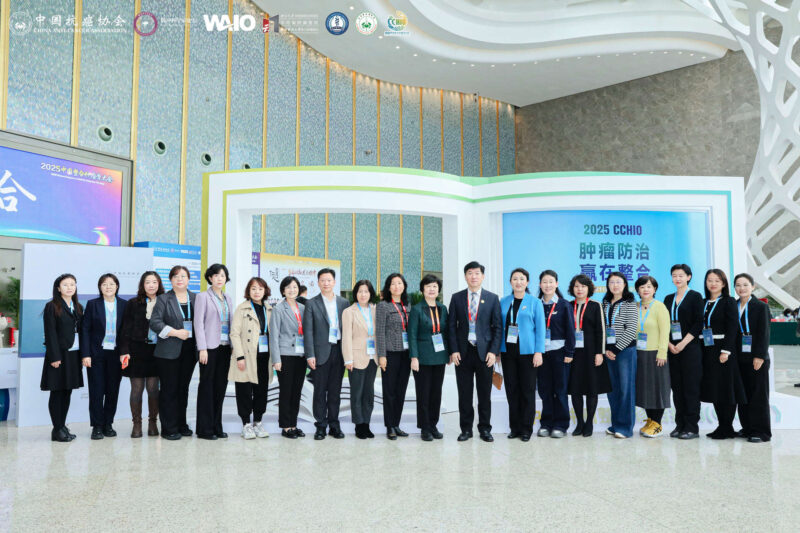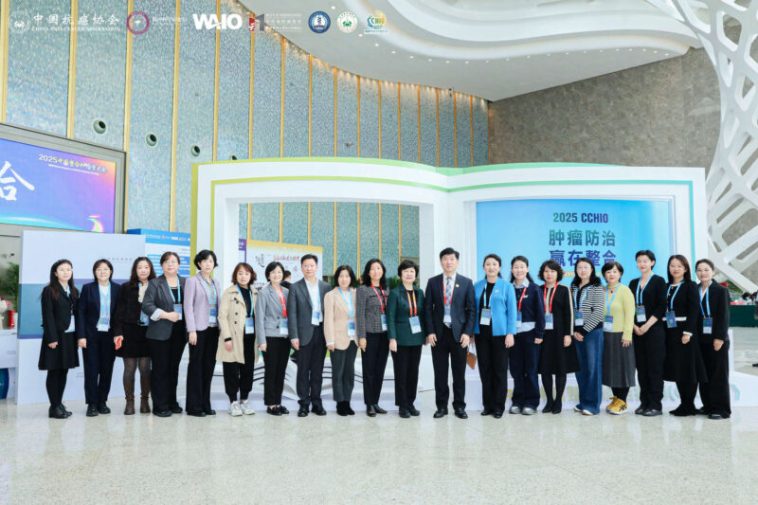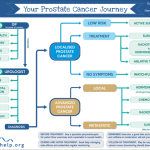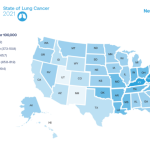
Integrative Oncology in the Digital Age: Redefining Cancer Care
The rapid evolution of cancer care over the past decade has been nothing short of transformative. With the emergence of integrative approaches that merge conventional oncology, traditional medicine, and supportive care, healthcare professionals worldwide are now able to tackle the tricky parts of cancer treatment with fresh perspectives. At the heart of this revolution was the 2025 Chinese Congress on Holistic Integrative Oncology (CCHIO) held in Kunming, a landmark event that captured the attention of millions, both online and offline.
This opinion editorial takes a closer look at the current state of integrative oncology, the implications of unprecedented digital engagement, and the promising future that lies ahead by blending age-old wisdom with modern clinical practices.
Global Digital Engagement and Its Impact on Holistic Cancer Conferences
The 2025 CCHIO event set a new record with an astonishing 78.52 million online viewers during its Opening Ceremony. This record-breaking digital reach is a clear indicator of how the modern healthcare community and the general public are increasingly turning to digital platforms to stay informed about the newest developments in cancer care.
With so many people tuning in, one might ask: What makes digital engagement so critical to the evolution of integrative oncology? The answer is twofold:
- Accessibility: Digital platforms break down geographical barriers, making expert insights accessible to individuals in even the remotest regions.
- Real-Time Learning: The interactive and real-time nature of digital broadcasts enables healthcare professionals to get the latest updates as new findings are presented.
These benefits are even more critical when considering the nerve-racking (scary) responsibilities of those in the oncology field. The opportunity to figure a path through emerging research, while engaging in global conversation, can make a tremendous difference in how innovative treatments are introduced and adopted.
Traditional Chinese Medicine: Bridging the Gap with Modern Oncology
One of the most notable aspects of the congress was its emphasis on merging traditional Chinese medicine (TCM) with conventional oncology. Instead of viewing TCM as an alternative, healthcare experts are now considering it as an expansion of the overall treatment palette. This holistic approach not only broadens the spectrum of care but also addresses the subtle parts of cancer treatment that often go unnoticed in a conventional setup.
Modern medicine typically relies on rigorous clinical tests and standard protocols. However, traditional practices bring in elements such as lifestyle medicine and psychosocial support, factors that are super important for a patient’s overall well-being. The integration of these two fields can offer:
- Better management of side effects: Herbal remedies and natural compounds often complement chemotherapy, reducing some of its overwhelming impacts.
- Enhanced patient resilience: Supportive care measures from TCM can add a layer of comfort and strength during challenging treatments.
- Holistic patient support: Incorporating practices like acupuncture and meditation contributes to both mental and physical recovery.
This synergy highlights the importance of working through both modern scientific evidence and traditional practices. It paves the way for future research collaborations that can further validate the benefits of such integrative treatments.
Advances in Integrative Immuno-Oncology: Combining Science with Tradition
The congress featured extensive sessions on integrative immuno-oncology, a field that is reimagining cancer treatment by harnessing the body’s own defenses. The combination of immunotherapy with holistic strategies is proving to be a game changer in the management of multiple cancer types. Experts at the event discussed how traditional herbal formulations could potentially enhance immune responses when administered alongside modern immunotherapy protocols.
This approach is not without its challenges. The fine points of combining such treatments include:
- Understanding drug interactions: It is crucial to study how natural compounds interact with conventional drugs to avoid unexpected tangled issues.
- Clinical validation: Rigorous clinical trials must be conducted to ensure these integrative methods are both safe and effective.
- Standardization: Establishing consistent protocols that merge both domains can help in replicating positive outcomes on a larger scale.
Ultimately, integrating immuno-oncology with holistic care calls for both innovative research and a compassionate approach. It underscores the need for a dialogue between researchers, clinicians, and traditional practitioners to come together and work on these complicated pieces of modern cancer treatment.
Multidisciplinary Exchange: The Role of Collaborative Research
At CCHIO 2025, one of the key highlights was the emphasis on multidisciplinary discussions, where experts from various fields came together to share their experiences and research. Passing over information through these channels is vital, as it helps professionals steer through the maze of ever-evolving cancer treatments and find their way across innovative therapeutic strategies.
The congress showcased a series of expert lectures and interactive sessions, allowing participants to:
- Exchange insights and clinical findings from global institutions.
- Learn how integrative therapies can be effectively combined with modern treatment modalities.
- Discuss the challenges of standardizing integrative practices while ensuring patient safety.
Collaborative exchange during the congress not only highlighted the scientific basis for integrative oncology but also emphasized the need for a sustained commitment to innovation. As research continues to pool together these diverse perspectives, the future of global cancer control appears brighter, offering treatments that are both scientifically grounded and deeply sympathetic to patient needs.
Integrating Digital Technologies With Medical Education: A New Paradigm
Digital technologies have revolutionized how knowledge is shared in the medical field. The impressive digital engagement seen at CCHIO 2025 is a testament to the power of online platforms in demystifying cancer treatment for both professionals and the public. With over 78 million viewers tuning in, it’s clear that digital literacy has become a super important tool in modern medicine.
Here are some of the ways digital technology is shaping the future of integrative oncology:
| Digital Platform | Impact on Oncology Education | Key Benefit |
|---|---|---|
| Online Webinars | Real-time updates and interaction with experts | Immediate dissemination of new research |
| Live Streaming | Unprecedented global reach beyond traditional venues | Inclusion of diverse audiences |
| Digital Archives | Access to recorded sessions for later review | Extended learning opportunities |
These tools not only disseminate vital clinical knowledge but also have the power to inspire a new generation of oncologists. Digital platforms help busy professionals manage their busy schedules by offering on-demand resources, thereby enabling them to combine continuous learning with practical clinical application.
Overcoming the Tricky Parts of Integrative Oncology Implementation
While the promises of integrative oncology are exciting, implementing these methods in routine clinical practice is not without its challenges. The journey to fully embrace integrative oncology is paved with several tricky parts that require a thoughtful and committed approach:
- Regulatory Concerns: Establishing clear guidelines on the use of natural compounds alongside conventional drugs is essential to avoid any tangled issues that may arise due to unapproved combinations.
- Clinical Trial Design: Integrative studies demand trials that are both rigorous and inclusive of multiple treatment parameters. The need to get around biased methodologies is a persistent challenge.
- Patient Acceptance: While many patients find holistic strategies comforting, there remains a need to educate patients about the nuances of integrative oncology to ensure informed choices.
- Resource Allocation: Health systems must balance the introduction of new integrative therapies with the cost and resource demands of traditional cancer treatments.
Addressing these issues involves not just scientific research but also policy changes. Government bodies, healthcare organizations, and academic institutions need to work together to craft policies that support safe and effective integrative practices. By taking the wheel in formulating these frameworks, stakeholders can ensure that integrative oncology remains on a solid, evidence-based foundation while also being accessible to all who need it.
Holistic Patient Support: Enhancing Quality of Life in Cancer Care
One of the key advantages of integrative oncology is its patient-centered approach, which goes beyond merely treating the disease to supporting the overall well-being of patients. Cancer care today increasingly recognizes the importance of addressing both the physical and emotional challenges that patients face. The integration of supportive therapies such as nutrition advice, mindfulness practices, and traditional healing methods creates a more holistic care environment.
Key benefits of holistic patient support include:
- Improved Coping Strategies: Patients learn new ways to manage the nerve-racking stresses that come with cancer diagnosis and treatment.
- Enhanced Rehabilitation: Post-treatment rehabilitation programs that combine modern physiotherapy with traditional practices aid in a smooth recovery.
- Emotional and Psychological Support: Counseling services and supportive care groups help patients manage the psychological twists and turns associated with their journey.
This approach is a breath of fresh air in a field often overwhelmed by the focus on pharmacological interventions alone. By incorporating additional layers of care, healthcare providers can create supportive environments where patients are truly seen and heard. This kind of compassionate care is not only refreshing but, in many cases, essential for ensuring long-term treatment adherence and patient satisfaction.
Exploring Collaborative Research: A Joint Effort in Advancing Cancer Treatment
One cannot overstate the significance of collaborative research in advancing integrative oncology. At CCHIO 2025, the convergence of insights from Western medicine and traditional therapeutic practices showcased how joint research efforts can help address the confusing bits of integrating diverse treatment protocols.
Collaboration between multiple institutions and expert groups facilitates:
- Cross-Disciplinary Learning: Researchers from distinct backgrounds can share methodologies that complement each other, making it easier to find your way through new clinical challenges.
- Comprehensive Clinical Trials: By pooling resources and expertise, institutions can design and implement large, multifaceted trials that yield more robust and generalizable results.
- Global Best Practices: International dialogue helps set up standards that ensure integrative oncology practices meet the highest safety and efficacy requirements.
Some of the collaborations highlighted during the congress include joint ventures between Chinese institutions and global organizations like the World Association of Integrative Oncology. Such partnerships are clearly a sign that cancer care is moving towards a more unified future, where cross-disciplinary learning is key to overcoming the tangled issues that have traditionally hindered progress in the field.
Future Challenges and Opportunities in Integrative Cancer Care
As promising as the developments in integrative oncology appear, the field is still loaded with challenges that need careful, constant attention. The future will likely see further blending of traditional healing systems with modern protocols, but not without significant hurdles. Key challenges include:
- Establishing International Standards: It is essential to develop global guidelines that reinforce the safe and effective combination of modern and traditional treatment practices.
- Ensuring Consistency in Clinical Practices: As integrative approaches evolve, creating reproducible and consistent protocols becomes a priority to avoid unexpected twists and turns in patient outcomes.
- Securing Funding for Joint Initiatives: Sustainable financial support is necessary for continuous research and development in the field, ensuring that new integrative modalities are rigorously tested before widespread adoption.
- Patient Education: There is a pressing need to clearly communicate the benefits and limitations of integrative oncology to patients, who may otherwise be overwhelmed by the nerve-racking complexities of treatment options.
While these challenges might seem intimidating, they also open the door to innovative solutions and robust cooperation between governments, academic institutions, and healthcare providers. By sorting out these issues with a proactive mindset, the future of integrative oncology can truly stand as a beacon of hope for patients around the world.
Cultivating a Patient-Centered Future Through Integrative Models
The story of CCHIO 2025 is a powerful example of how integrative oncology is paving the way for a future-centric model of cancer care. The decision to merge varied treatment modalities, explore advanced immuno-oncology, and promote an inclusive dialogue among global experts demonstrates a commitment to high-quality patient support.
This new paradigm supports personalized care plans that consider:
- Individual Health Priorities: Treatment plans are increasingly being tailored to a patient’s lifestyle, genetic factors, and even personal beliefs about health and treatment.
- Enhanced Monitoring and Support: Ongoing advancements in digital health tools mean patients can receive real-time support and adjustments to their care strategies.
- Integrative Wellness Practices: Incorporation of nutritional guidance, exercise, and stress management therapies directly supports the overall treatment plan, ultimately enhancing quality of life.
Ultimately, the integrative model moves cancer care away from a one-size-fits-all approach towards a truly individualized strategy. In doing so, it not only improves clinical outcomes but also ensures that patients feel supported throughout each phase of their journey.
The Role of Policy and Institutional Collaboration in Shaping Integrative Oncology
One of the recurring themes at the congress was the tremendous importance of strong institutional collaboration. The event was hosted and jointly organized by some of the most influential organizations in China, which underlines the critical role of policy in promoting integrative health care practices.
Institutional and governmental bodies can support integrative oncology by taking targeted steps such as:
- Developing Unified Policies: Clear policies are essential for integrating conventional and traditional therapies safely and effectively.
- Encouraging Interdisciplinary Research: Funding and support for joint studies between modern oncologists and traditional practitioners can help clear up many of the confusing bits regarding treatment protocols.
- Providing Continuous Medical Education: Offering ongoing training programs that incorporate the latest research in integrative oncology ensures that clinicians are well-equipped to manage the complicated pieces of modern cancer treatment.
This collaborative spirit is exactly what is needed to bridge the gap between different medicinal traditions. By creating an environment where regulatory bodies, healthcare providers, and researchers can work hand-in-hand, the overall goal of better, more comprehensive cancer care is well within reach.
Lessons Learned and the Road Ahead for Integrative Oncology
The CCHIO 2025 congress was not merely a series of lectures and panel discussions; it was a celebration of a united vision for future cancer care. Here are some of the key lessons learned and what they mean for the future:
- Embrace Digital Transformation: As seen with the massive online turnout, digital engagement will continue to play a super important role in how vital medical knowledge is shared across continents.
- Foster Open Communication: Transparent dialogue between conventional and traditional practitioners fosters trust, leading to better treatment outcomes and a more complete understanding of patient needs.
- Invest in Research Collaboration: It is the joint effort—spanning international borders and multiple disciplines—that will help figure a path through the evolving landscape of cancer care.
- Stay Patient-Centric: In an era of rapid change, maintaining a focus on each patient’s experience ensures that integrative oncology not only advances clinically but remains deeply human in its approach.
Looking ahead, the road is promising but lined with multiple challenges. It is up to all stakeholders—from researchers and clinicians to policymakers and patient advocates—to keep pushing forward. As we continue to work through these problems, the blend of modern scientific rigor with the hidden complexities of traditional healing methods will power the next wave of breakthroughs in cancer care.
Bridging Science and Compassion: A Unified Vision for Cancer Control
The beautiful synergy between conventional oncology and holistic practices showcased at CCHIO 2025 has ignited hope across the globe. By merging innovative medical research with age-old, culturally enriched healing practices, the event embodied a vision that is both scientifically rigorous and deeply compassionate. This unified approach is exactly what global cancer control needs to meet the demanding expectations of modern medicine.
It is clear that embracing integrative oncology is not just about adding another tool to the clinician’s toolbox—it’s about redefining the entire framework of patient care. The success of such conferences underscores the notion that when diverse communities take the wheel together, they create pathways leading to more resilient, aware, and empowered patient populations.
A Call for Continued Innovation and Collaborative Spirit
Integrative oncology stands at a crossroads, where traditional wisdom meets cutting-edge science. The engaging discussions, record-breaking digital outreach, and widespread international collaboration at CCHIO 2025 have set the stage for future innovations. It is now more critical than ever for the community to take a closer look at combining data-driven research with empathetic, holistic care.
In the coming years, the success of integrative oncology will largely depend on the ongoing efforts to:
- Ensure that every new therapeutic strategy is tested for both safety and real-world applicability.
- Create training modules that help clinicians make their way through the maze of integrative treatments with confidence.
- Develop worldwide networks that promote continuous learning and resource sharing.
- Keep the patient’s overall welfare at the center of every decision made.
This approach is not filled with only moments of glory—it is a continuous journey full of small distinctions, subtle parts, and the occasional nerve-racking decision. But with every successful trial, every piece of positive feedback from patients, and every insightful research paper published, the path becomes a bit clearer.
Final Thoughts: The Promise of a Holistic Future in Cancer Care
The integration of modern oncology with traditional practices is an ongoing experiment—a living project that must adapt as new discoveries are made. As global engagement grows, one thing remains clear: the future of cancer care lies in the balance between science and compassion. By supporting interdisciplinary collaboration, embracing digital platforms, and prioritizing patient-centered treatments, the healthcare community stands on the brink of a true paradigm shift.
In conclusion, events like CCHIO 2025 are not just milestones in scientific achievement; they represent a deep commitment to rethinking how we approach one of humanity’s most challenging health issues. They remind us that while there are plenty of tricky parts and overwhelming obstacles, innovation coupled with empathy can guide us through the twists and turns of modern cancer care.
As we continue to champion research, education, and international dialogue, there is every reason to be optimistic about the future. With targeted policy changes, robust clinical trials, and a dedicated, collaborative approach, integrative oncology will undoubtedly play a key role in the global fight against cancer. The path forward may be loaded with challenges, but it is also rich with opportunities to enhance lives and transform the landscape of medical care for generations to come.
About the Author
Nare Hovhannisyan, MD, is a seasoned oncologist and healthcare writer with years of experience in both conventional and integrative cancer care. Passionate about bridging the gap between modern medical research and traditional healing practices, Dr. Hovhannisyan brings an insightful perspective to the evolving world of oncology.
Originally Post From https://oncodaily.com/insight/cchio-2025
Read more about this topic at
Bridging Borders in Integrative Oncology: A Global Initiative …
Bridging Borders and Advancing Oncology’s Global Mission


